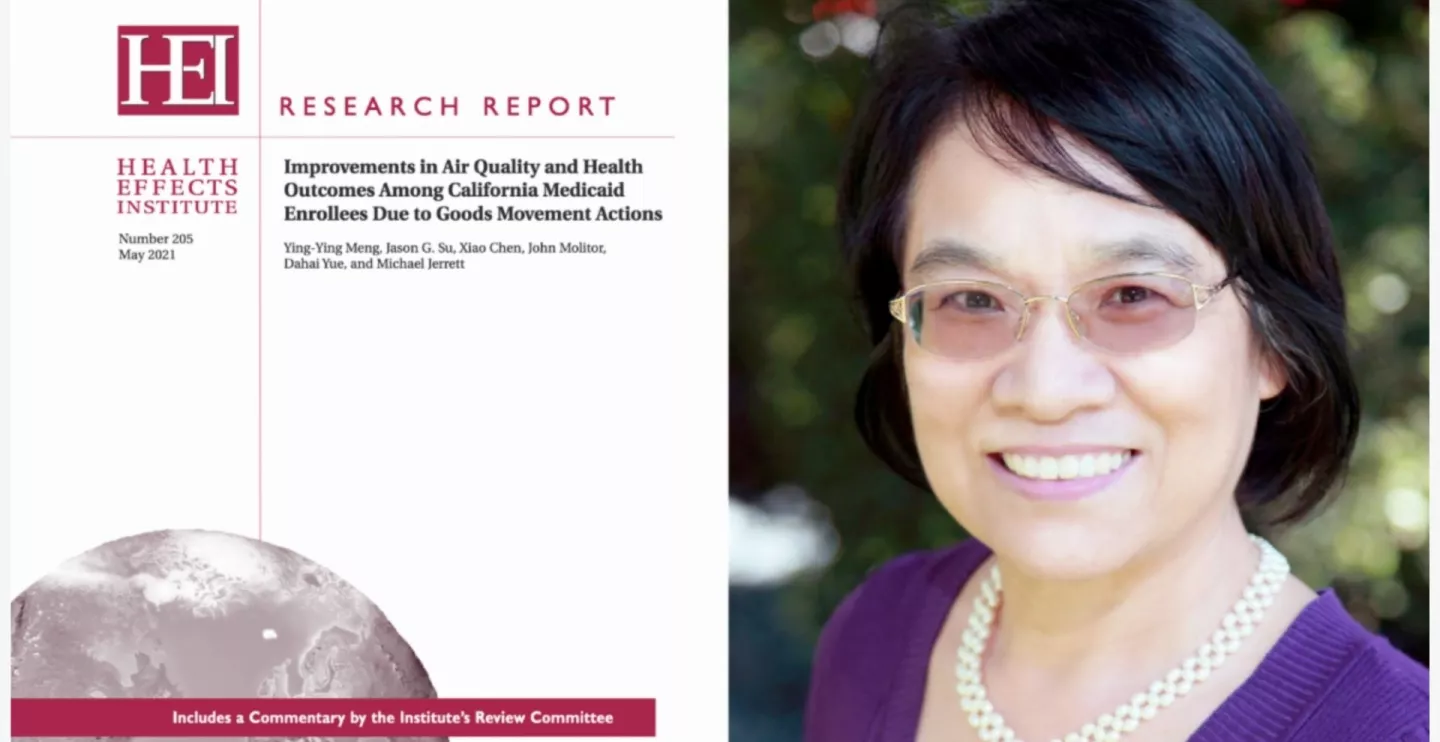A new study led by UCLA researchers and published today by the Health Effects Institute (HEI) has found that a series of actions taken to reduce pollution from California goods movement activities — targeting emissions from various marine, on-road, and off-road vehicles used to transport traded goods into, out of, and across the state — resulted in reduced exposure to air pollution and emergency room visits for individuals enrolled in Medi-Cal.
Data showed that people who had asthma and chronic obstructive pulmonary disease had the most improvements. The study is the latest report from HEI’s Accountability Research program, which studies whether actions taken to improve air quality have reduced pollution and improved health.
In the study entitled Improvements in Air Quality and Health Outcomes Among California Medicaid Enrollees Due to Goods Movement Actions, Dr. Ying-Ying Meng of the UCLA Center for Health Policy Research, and colleagues compared changes from the pre- and post-policy periods, when a series of actions to reduce air pollution from the movement of goods were implemented. They tested effects in three areas based on proximity to major goods movement transit routes: areas near ports and freeways with truck traffic, areas near freeways without truck traffic, and control areas not near ports or freeways. Results from this study showed that actions to reduce emissions related to goods movement may be effective in improving local air quality levels and health care use among lower-income, disadvantaged, and underserved communities.
“Our study could be the first of its kind to show that the California Air Resources Board’s 2006 Emission Reduction Plan for Ports and Goods Movement have not only improved air quality but also improved health, especially for the at-risk, disadvantaged population. These findings shed light on health disparities and can help reduce unequal exposures to environmental hazards,” said Ying-Ying Meng, co-director of the Chronic Disease Program at the UCLA Center for Health Policy Research and lead author of the study.
Diesel emissions related to the movement of traded goods into, out of, and across California contribute to higher air pollution levels in communities located next to or nearby ports and freeways. These communities are also more likely to consist of lower-income households which may be more at-risk for exposure to air-pollution-related health effects. To address this issue, the California Air Resources Board implemented a multiyear plan to reduce goods movement emissions through both mandatory and voluntary actions, which included requiring electric shore power for ships, repowering harbor crafts with a compliant engine, switching cargo handling equipment to low-sulfur fuels, and incentives for retrofitting truck fleets with higher efficiency, cleaner engines.
“The data can serve as key evidence that limiting emissions from the movement of goods in the state can positively impact the health of individuals living around the port and freeway transit areas, and may also guide efforts in other states and countries that are looking into air pollution exposure and health outcomes,” said Daniel S. Greenbaum, president of the Health Effects Institute.
The UCLA Center for Health Policy Research (CHPR) is one of the nation’s leading health policy research centers and the premier source of health policy information for California. UCLA CHPR improves the public’s health through high quality, objective, and evidence-based research and data that informs effective policymaking. UCLA CHPR is the home of the California Health Interview Survey (CHIS) and is part of the UCLA Fielding School of Public Health and affiliated with the UCLA Luskin School of Public Affairs.
The Health Effects Institute (HEI) is an independent, non-profit research institute funded jointly by the U.S. Environmental Protection Agency, industry, foundations and development banks to provide credible, high quality science on air pollution and health for air quality decisions. HEI’s research is selected, overseen, and peer reviewed by leading subject matter experts on environment and health without involvement of HEI’s public or private sponsors.




